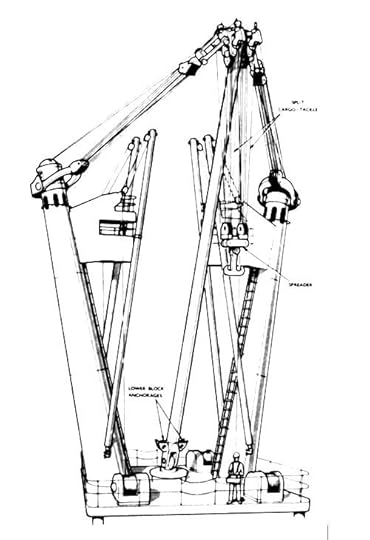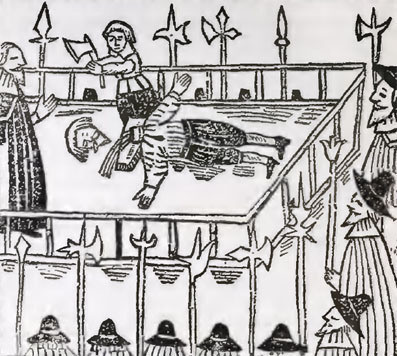Derricks and other words named after people
We probably all know that the wellies we might wear to go on walks through muddy fields are named after the Duke of Wellington, the “Iron Duke”. Perhaps less well known is the link between the mac ��� in British English, at any rate ��� that we might also wear and its inventor, the deviser of the waterproof cloth from which macs are made, Charles Macintosh (1766���1843), the Scottish inventor who patented the cloth. Many units of scientific measurement, both everyday and more specialized, are named after their discoverers: the Italian physicist Count Alessandro Volta gave us volts, the Scottish engineer James Watt gave us, er, ��� watts, and the British Lord Kelvin gave his name to the units in which absolute temperature is measured.
If you enjoy this blog, and find it useful, there’s an easy way for you to find out when I blog again. Just sign up (in the right-hand column, above the Twitter feed) and you’ll receive an email to tell you. “Simples!”, as the meerkats say. I shall be blogging regularly about issues of English usage, word histories, and writing tips. Enjoy!
Such words, derived from someone���s name, are technically called eponyms, a word created in the 19th century from the Greek ep��numos “given as a name, giving one’s name to someone or something”, from epi “upon” + onoma “name” (�����������������; ������� + �����������, Aeolic ����������� name). The same Greek word for ���name��� has given English also anonymous and synonym(ous). And when people refer to the eponymous hero of such and such a novel, e.g. Fielding’s��Tom Jones, they mean that the title of the novel is its protagonist’s name.
derrick ��� Not a misspelling of the Christian name Derek, but a word for a type of crane with a movable pivoted arm for moving heavy weights, especially on a ship (see the image below); and, perhaps more commonly these days, the framework over an oil well or similar boring, holding the drilling machinery.
This seemingly innocent, mechanical word conceals a rather grisly story, for derrick was originally a nickname for a hangman, and not just any old hangman. The man whose surname was Der(r)ick served under the Elizabethan magnifico��Robert Devereux, the second Earl of Essex, who was a great favourite of Queen Elizabeth.
At the siege of Cadiz, Der(r)ick committed rape and was sentenced to death, but was pardoned by the earl when he agreed to become the hangman at Tyburn, the place of execution of criminals (not far from present-day Marble Arch in London). He is said to have invented a more advanced and reliable��method of hanging that involved a beam and pulleys, and the word for it was then applied by analogy to similarly constructed cranes. This eponym therefore displays a semantic shift, unlike many others, whose referent stays the same.
A historical irony is that Der(r)ick ended up executing his own saviour, the Earl of Essex. The first citation for derrick��in the OED is dated circa 1600 and is from a lengthy “lamentable ditty”����� a ballad����� bewailing the execution of the earl,��on 25 February, 1601, for treason . (However, the version that I have been able to access online��wrongly dates his execution to 1603.)
Sweet Englands pride is gone,
Which makes her sigh and groan,
Evermore still,
He did her fame advance in Ireland Spain and France,
And by a sad mischance,
Is from us tane. [taken]
…
Derick, thou know’st at Cales I sav’d
Thy life lost for a rape there done,
As thou thyself can’st testifie,
Thine own hand three and twenty hung,
But now thou seest my self is come
By chance into thy hands I light,
Strike out thy blow that I may know
Thou ever loved at his good night.
…
But to Christ who for my sins did dye,
Trickling with salt tears in his sight
Spreading my arms to God on high,
Lord Jesus receive my soul this night.

The 2nd Earl of Essex; miniature attrib. to Nicolas Hilliard.
Apparently, it took three blows to sever his head����� well, he was well known for his brass neck����� and when the Queen was informed, she momentarily stopped playing the virginals, and then played on.
Filed under: Word origins,






